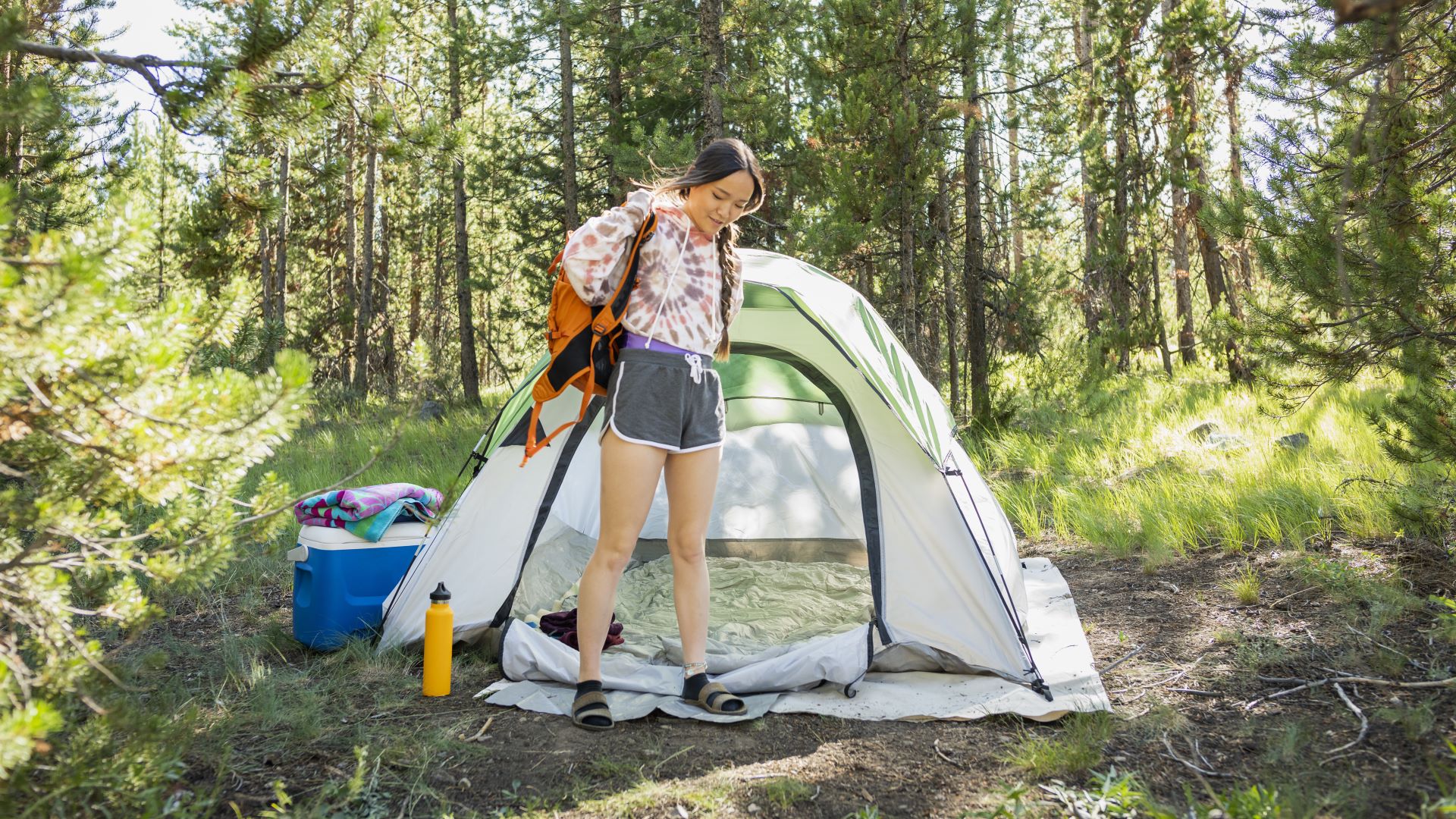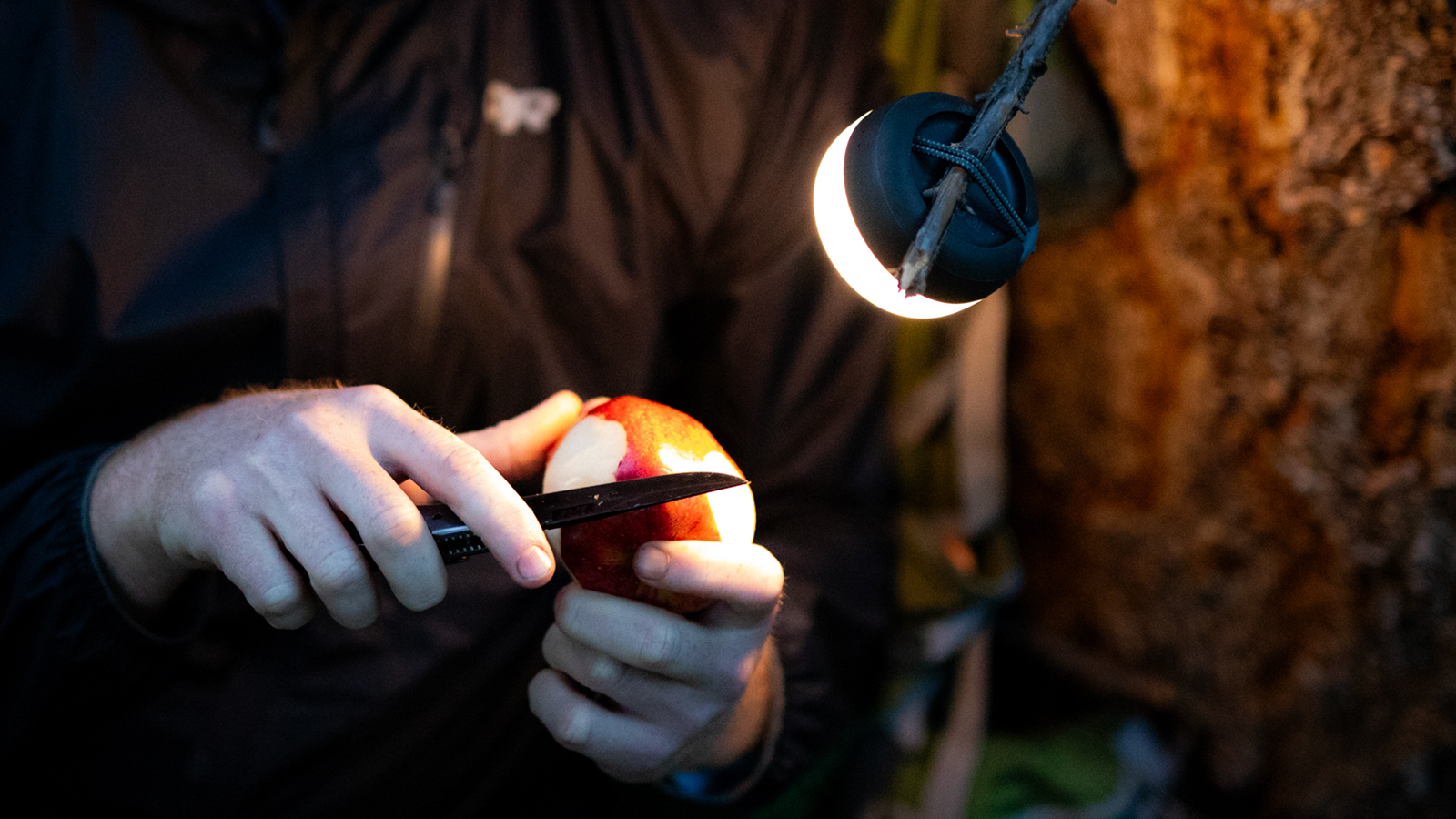5 not-so-obvious things first-time campers should consider before hitting the trails
Are you ready to tackle the Great Outdoors? You'd better check out these tips first.


Get all the latest news, reviews, deals and buying guides on gorgeous tech, home and active products from the T3 experts
You are now subscribed
Your newsletter sign-up was successful
Camping for the first time can be a daunting experience. How do you set up a tent? How much food should you bring? Will there be facilities on the campsite? How will you navigate around in the dark? While the answers to most of these questions are readily available online, we gathered a few not-so-obvious things first-time campers should consider before setting off.
We didn't include it on this list, but there is a separate tutorial on how to dry your tent at home if you're interested in that. It is aimed more at intermediate campers with some gear, but we also have a list of 12 checks every self-respecting camper should do before the spring season. Who knows, you might be able to find some useful information in there, too...
1. Unpredictable weather
First and foremost, the weather outdoors can be highly unpredictable, often changing rapidly, even if the forecast says it'll be sunny for the whole duration of your trip. As such, first-time campers should be prepared for unexpected conditions like sudden rainstorms, gusty winds, or temperature fluctuations.
Bringing appropriate clothing layers and gear to stay comfortable in various weather scenarios is crucial for an enjoyable camping experience. Think of stuff like waterproof jackets, fleece layers, and base layers; anything that can help you stay dry while you're away from your usual creature comforts.
If you're backpacking or need lighter gear, consider lightweight shells, technical fleeces and quick-wicking Merino undergarments. Also, waterproof hiking boots or walking shoes are your friends.
2. Noisy nights
Camping amidst natural environments can introduce campers to a plethora of unfamiliar sounds, ranging from rustling leaves to nocturnal animal calls – not to mention other campers moving around your tent. These noises may disrupt sleep patterns and affect overall restfulness.
To mitigate this, you can consider using earplugs or white noise machines to drown out surrounding sounds and promote a more peaceful night's sleep. If you're camping during summer, blackout tents, such as the oddly named Quechua Camping Tent 2 Seconds Easy - 2-Person - Fresh&Black, can help you block out the light, which might help you relax a little bit more.
Get all the latest news, reviews, deals and buying guides on gorgeous tech, home and active products from the T3 experts
3. Limited access to facilities
Many campsites, especially those in remote areas, offer limited or no access to essential facilities such as bathrooms, showers, and running water. First-time campers should prepare for this by bringing adequate hygiene supplies, including biodegradable soap, hand sanitiser, and wet wipes.
It's also essential to familiarise yourself with proper waste disposal methods to maintain cleanliness and environmental responsibility. To give you an idea of what you might need, check out these seven eco-friendly camping essentials, from water filtration systems to waterless toothpaste.

4. Darkness and limited lighting
Nighttime in wilderness settings can be exceptionally dark, posing challenges for activities such as cooking, navigating, or even attending to basic needs like going to the bathroom. Campers should ensure they have sufficient lighting options, such as headlamps, camping lanterns, or flashlights, along with extra batteries. Proper illumination not only enhances safety but also contributes to a more comfortable camping experience.
5. Insects and bugs
Camping exposes individuals to various insects and bugs, including mosquitoes, ticks, and spiders, which can pose health risks and discomfort. To protect against bites and stings, you should pack insect repellent, wear long-sleeved clothing, and consider using mosquito nets when sleeping. Plus, familiarising yourself with basic first aid for insect-related injuries can be invaluable in addressing potential challenges while camping.

Matt Kollat is a journalist and content creator for T3.com and T3 Magazine, where he works as Active Editor. His areas of expertise include wearables, drones, action cameras, fitness equipment, nutrition and outdoor gear. He joined T3 in 2019.
His work has also appeared on TechRadar and Fit&Well, and he has collaborated with creators such as Garage Gym Reviews. Matt has served as a judge for multiple industry awards, including the ESSNAwards. When he isn’t running, cycling or testing new kit, he’s usually roaming the countryside with a camera or experimenting with new audio and video gear.